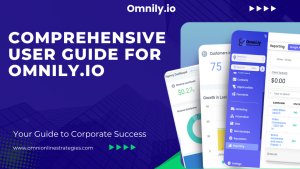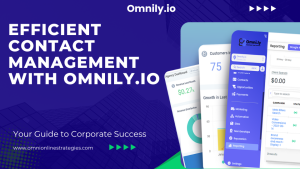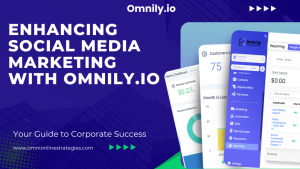In this blog post, we’ll discuss how to use social media to grow your e-commerce business. Social media is a powerful tool that can help you reach new customers, engage with your existing audience, and ultimately drive more sales. We’ll cover everything from choosing the right platforms to creating compelling content and measuring your results.

In today’s digital age, social media has become an essential marketing tool for businesses, including e-commerce. Social media platforms offer businesses the opportunity to reach a vast audience, engage with potential customers, and ultimately drive more sales. In this article, we’ll discuss how to use social media to grow your e-commerce business.
Choose the Right Platforms
Choosing the right social media platforms for your e-commerce business is crucial for effectively reaching your target audience and achieving your marketing goals. Here are some key considerations to keep in mind when selecting social media platforms:
1. Determine your target audience: Before choosing social media platforms, you need to identify your target audience and understand their social media behavior. Research which platforms your target audience is most active on and how they engage with content.
2. Assess the platform’s suitability: Different social media platforms have different features, audience demographics, and content styles. Consider whether your content is suitable for the platform and whether it aligns with your marketing objectives. For example, if you are selling fashion or lifestyle products, Instagram or Pinterest might be more suitable than LinkedIn.
3. Consider your content format: Some platforms are more suited to specific types of content than others. For example, visual content such as images and videos work well on Instagram, while text-based content works better on Twitter or LinkedIn. Consider the format of your content and whether it can be easily adapted to fit the platform.
4. Evaluate your competition: Check out your competitors’ social media profiles to see which platforms they are using and how they are engaging with their audience. This can give you insights into which platforms might work best for your business.
5. Set realistic goals: Consider your marketing goals and objectives and determine which social media platforms will help you achieve those goals. Be realistic about your resources and capacity and focus on the platforms that you can manage effectively.
By understanding your target audience, assessing the platform’s suitability, considering your content format, evaluating your competition, and setting realistic goals, you can select the platforms that work best for your e-commerce business.
Create Compelling Content
Creating compelling content is key to standing out on social media and engaging with your audience. Here are some best practices to consider when creating social media content for your e-commerce business:
1. Understand your audience: Before creating content, it’s important to understand your audience and what kind of content they enjoy and engage with. This can include conducting research on their interests, preferences, and social media behavior.
2. Use visuals: social media is a highly visual platform, so it’s important to use visually appealing images and videos to grab your audience’s attention. Use high-quality images that showcase your products or services in an engaging way.
3. Be authentic: Authenticity is important on social media, so make sure your content aligns with your brand’s message and tone. Share behind-the-scenes content or user-generated content to show the human side of your business.
4. Use customer testimonials: Customer testimonials are a powerful way to showcase the benefits of your products or services. Share customer reviews and testimonials to build social proof and increase trust in your brand.
5. Be creative: Experiment with different types of content, such as GIFs, infographics, or memes, to keep your content fresh and interesting. However, make sure your creativity doesn’t compromise your brand’s message and tone.
6. Use a consistent brand voice: Use a consistent brand voice across all your social media platforms to create a cohesive brand identity. This can include using the same tone, language, and visual style across all your content.
By understanding your audience, using visuals, being authentic, using customer testimonials, being creative, and using a consistent brand voice, you can create social media content that resonates with your audience and drives engagement for your e-commerce business.
Engage with Your Audience
Engagement is a crucial component of social media marketing because it helps build a relationship with your audience and foster loyalty. Here are some reasons why engagement is important:
1. Builds trust: When you actively engage with your followers by responding to their comments, direct messages, and mentions, you are showing them that you care about their opinions and feedback. This builds trust and credibility with your audience.
2. Increases brand awareness: When you engage with your followers, your brand name and profile become more visible. This can help increase your brand’s reach and attract new followers.
3. Fosters loyalty: When you engage with your followers on a regular basis, you are building a relationship with them. This can lead to increased loyalty and advocacy for your brand.
4. Provides valuable insights: By engaging with your followers, you can gain valuable insights into their preferences, interests, and pain points. This can help you improve your products or services and create content that resonates with your audience.
Here are some best practices for engaging with your followers on social media:
1. Respond promptly: Respond to comments, direct messages, and mentions in a timely manner. This shows your followers that you value their feedback and are actively listening to them.
2. Be genuine: When responding to comments or direct messages, be authentic and genuine. Avoid canned responses or automated messages, as they can come across as insincere.
3. Use a friendly tone: Use a friendly and approachable tone when engaging with your followers. This can help build a personal connection with your audience.
4. Ask questions: Ask your followers questions to encourage them to engage with your brand. This can help increase engagement and foster a sense of community.
By responding promptly, being genuine, using a friendly tone, and asking questions, you can create a positive and engaging experience for your followers and drive social media success for your e-commerce business.








